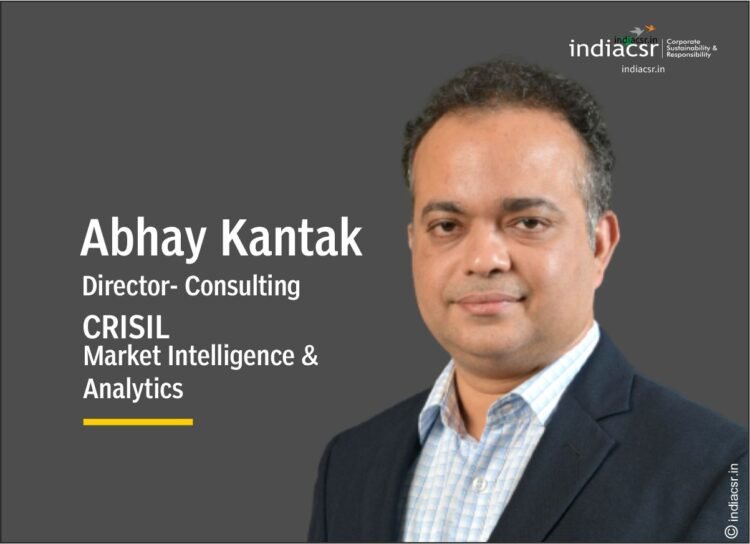In Conversation with Abhay Kantak, Director- Consulting, CRISIL Market Intelligence and Analytics, on the Role of Urban Infrastructure in Ensuring Water Sustainability in Line with Prime Minister Modi’s Vision.
As India strives towards a more sustainable future, the role of urban infrastructure in managing and conserving water resources becomes increasingly pivotal. In this enlightening conversation, Abhay Kantak, a renowned market intelligence expert from CRISIL, discusses the urgency of adopting sustainable infrastructure and water management practices to alleviate water stress by 2050.
Q: How important do you think urban water infrastructure considerations are to reduce water stress by 2050, and why?
Abhay: The demand for urban drinking water in India is expected to double by 2050, with urban infrastructure playing a crucial role in meeting this increased demand efficiently. With the growing water scarcity, enhanced water efficiency is indispensable across all sectors.
Q: How do you see the trend towards sustainable infrastructure evolving over the next 5-10 years?
Abhay: The successful adoption of sustainable infrastructure requires a clear, well-understood, and enforceable policy framework and regulations, with a focus on incorporating sustainability at the design and approval stage of projects. Economic incentives can also catalyze the adoption process.
Q: What is water resilience and Green Infrastructure?
Abhay: Water resilience refers to a city’s ability to recover from water-related stress. On the other hand, green infrastructure comprises a strategically planned network of natural and semi-natural areas, designed to enhance biodiversity and deliver a wide range of ecosystem services.
Q: What is the Integrated urban water management system and how this can be planned in line with economic development and land use?
Abhay: An integrated urban water management system oversees the entire chain of water utilization, from sourcing to eventual discharge after treatment. In line with economic development and land use, regulations encouraging sustainable urban infrastructure, such as dual-plumbing systems and decentralized wastewater treatments, will become the new normal.
Q: How can cities strategize to help them navigate the process of building water resilience?
Abhay: Building water resilience necessitates a holistic view of a city’s water supply needs, efficient water production and distribution, flood protection measures, groundwater recharging, and aquifer management.
Q: What factors increase the likelihood of a city being water stressed, even after accounting for its urban water infrastructure?
Abhay: Geographic location, over-exploitation of resources, and climate change-induced extreme weather conditions can exacerbate water stress in cities, despite resilient urban water infrastructure.
Q: How can a comprehensive water balance approach along with integrated urban water management practices be the solution to India’s urban water woes?
Abhay: Adopting a water balance approach, through the creation of district metering areas, can help manage urban water issues more effectively. However, this necessitates correct governance structures, local-level accountability, and optimal pricing of services.
Q: The increasing spell of heat-waves and other extreme weather events are expected to alter the water requirements. Do you think a country’s strategy for water security, drawn up with targets for 2050, take the climate change factor into account?
Abhay: While climate change’s impact is often addressed in macro-level plans, the absence of local action plans is a glaring issue. Coordinated strategies at all levels of government, with local governments driving implementation, are crucial for long-term solutions.
Q: What are some of the key challenges that cities face in implementing a strong water resilience strategy, and how can they overcome these challenges?
Abhay: To successfully implement a water resilience strategy, cities must be empowered functionally, financially, and politically. A single plan, with all stakeholders on board, can streamline and enhance the effectiveness of strategy implementation.
Q: What steps do you think cities should take now to ensure that they are well-positioned for a future in which there is reduced water stress?
Abhay: Cities must align their water resilience plans with all stakeholders, including state and central entities. This unified approach will ensure that funds from higher levels of government are utilized effectively, paving the way for a future with reduced water stress.
(India CSR)






















